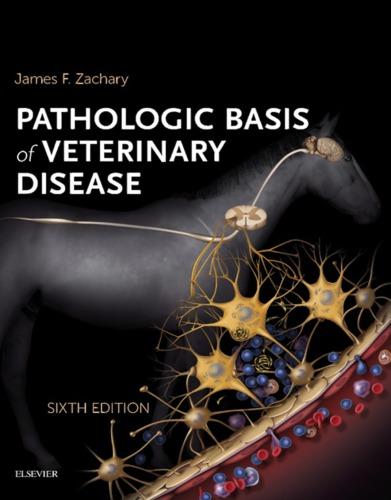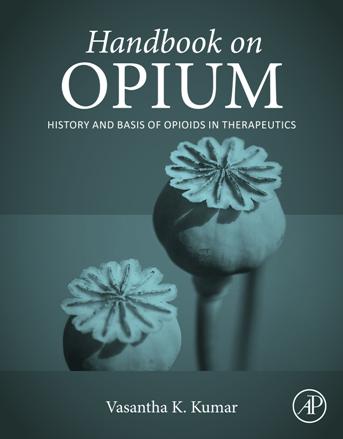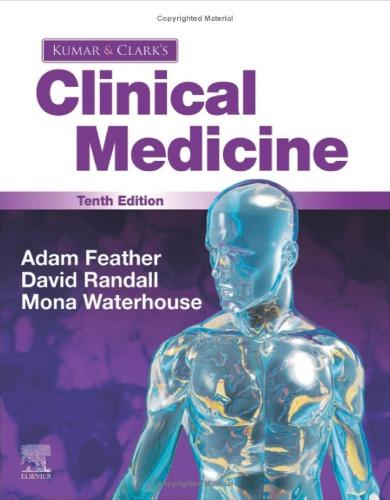1
Modular Signaling Proteins, Hubs, and Nodes 19
Transcription Factors 19
Growth Factors and Receptors 20
Extracellular Matrix 21
Components of the Extracellular Matrix 23
Maintaining Cell Populations 25
Proliferation and the Cell Cycle 25
Stem Cells 28
Regenerative Medicine 29
breathtaking level of complexity far beyond the linear sequence of the genome. The potential of these powerful innovations to explain disease pathogenesis and drive therapeutic discovery excites and inspires scientists and the lay public alike.
Noncoding DNA
The human genome contains some 3.2 billion DNA base pairs. Yet, within the genome there are only about 20,000 protein-encoding genes, constituting just 1.5% of the genome. These are the blueprints that instruct the assembly of the enzymes, structural elements, and signaling molecules within the 50 trillion cells that make up the human body. Although 20,000 underestimates the actual number of encoded proteins (many genes produce multiple RNA transcripts that translate to different protein isoforms), it is nevertheless startling to realize that worms, which are composed of fewer than 1000 cells and have 30-fold smaller genomes also have about 20,000 protein-encoding genes. Many of these proteins are recognizable homologs of molecules expressed in humans. What then separates humans from worms?
The answer is not completely known, but evidence suggests that much of the difference lies in the 98.5% of the human genome that does not encode proteins. The function of such long stretches of DNA (so-called genome “dark matter”) was mysterious for many years. However, over 85% of the human genome is ultimately transcribed; nearly 80% is devoted to regulation of gene expression. It follows that while proteins provide the building blocks and
Richard N. Mitchell
machinery required for assembling cells, tissues, and organisms, it is the noncoding regions of the genome that provide the critical “architectural planning.” Practically stated, the difference between worms and humans apparently lies more in the genomic “blueprints” than in the construction materials.
There are five major classes of functional non–proteincoding sequences in the human genome (Fig. 1.1):
• Promoter and enhancer regions that provide binding sites for transcription factors.
• Binding sites for factors that organize and maintain higher order chromatin structures.
• Noncoding regulatory RNAs. Over 60% of the genome is transcribed into RNAs that are never translated but regulate gene expression through a variety of mechanisms. The two best-studied varieties—micro-RNAs (miRNAs) and long noncoding RNAs (lncRNAs)—are described later.
• Mobile genetic elements (e.g., transposons) make up more than a third of the human genome. These “jumping genes” can move around the genome during evolution, resulting in variable copy number and positioning even among closely related species (e.g., humans and other primates). Although implicated in gene regulation and chromatin organization, the function of mobile genetic elements is not well established.
Heterochromatin
Nucleolus
Euchromatin Nucleus
• Special structural regions of DNA, in particular, telomeres (chromosome ends) and centromeres (chromosome “tethers”). A major component of centromeres is so-called satellite DNA, consisting of large arrays—up to megabases in length—of repeating sequences (from 5 bp up to 5 kb). Although classically associated with spindle apparatus attachment, satellite DNA is also important in maintaining the dense, tightly packed organization of heterochromatin (discussed later).
Many genetic variations (polymorphisms) associated with diseases are located in non–protein-coding regions of the genome. Thus variation in gene regulation may prove to be more important in disease causation than structural changes in specific proteins. Another surprise that emerged from genome sequencing is that any two humans are typically more than 99.5% DNA-identical (and are 99% sequenceidentical with chimpanzees)! Thus individual variation, including differential susceptibility to diseases and environmental stimuli, is encoded in less than 0.5% of our DNA (representing about 15 million bp).
The two most common forms of DNA variation in the human genome are single nucleotide polymorphisms (SNPs) and copy number variations (CNVs).
• SNPs are variants at single nucleotide positions and are almost always biallelic (only two choices exist at a given
Heterochromatin (dense, inactive)
Euchromatin (disperse, active)
Figure 1.1 The organization of nuclear DNA. At the light microscopic level, the nuclear genetic material is organized into dispersed, transcriptionally active euchromatin and densely packed, transcriptionally inactive heterochromatin; chromatin can also be mechanically connected with the nuclear membrane, and membrane perturbation can thus influence transcription. Chromosomes (as shown) can be visualized only during mitosis. During mitosis, they are organized into paired chromatids connected at centromeres; the centromeres act as the locus for the formation of a kinetochore protein complex that regulates chromosome segregation at metaphase. The telomeres are repetitive nucleotide sequences that cap the termini of chromatids and permit repeated chromosomal replication without deterioration of genes near the ends. The chromatids are organized into short “P” (“petite”) and long “Q” (next letter in the alphabet) arms. The characteristic banding pattern of chromatids has been attributed to relative GC content (less GC content in bands relative to interbands), with genes tending to localize to interband regions. Individual chromatin fibers are comprised of a string of nucleosomes— DNA wound around octameric histone cores—with the nucleosomes connected via DNA linkers. Promoters are noncoding regions of DNA that initiate gene transcription; they are on the same strand and upstream of their associated gene. Enhancers can modulate gene expression over distances of 100 kb or more by looping back onto promoters and recruiting additional factors that drive the expression of pre–messenger RNA (mRNA) species. Intronic sequences are spliced out of the pre-mRNA to produce the final message that is translated into protein—without the 3′–untranslated region (UTR) and 5′-UTR. In addition to the enhancer, promoter, and UTR sequences, noncoding elements, including short repeats, regulatory factor binding regions, noncoding regulatory RNAs, and transposons, are distributed throughout the genome.
Another random document with no related content on Scribd:
capacities were developed, and their physical strength increased, they were divided into several classes. Some, destined to become “men of the pen,” were educated in legal and administrative knowledge, and from them the officials in the civil and financial administration were usually selected. Many became secretaries of state, judges and viziers. Another division was disciplined as “men of the sword,” and the celebrated corps of janissaries was at first composed of select individuals from this body. This college of conquering missionaries, when formed by Orkhan, consisted of only one thousand, but before the end of his reign it had increased to three thousand; and when Mohammed II. took Constantinople, the number had attained twelve thousand. The tribute children were also numerous in the ranks of the cavalry, artillery, and police soldiers of the empire. Never, indeed, was so terrible an instrument of absolute power created so rapidly and so completely beyond all external influence as that which Orkhan formed. The tribute children were all members of the household of the Othoman Sultan. They had no ties of family or country, and felt no responsibility but what they owed to the prophet and the Sultan. At the beck of the Sultan, and with a fetva of the mufti, they were ready to strike down the proudest noble of the Seljouks, to shed the purest blood of the Arabs, and to trample on all the hereditary feelings and prejudices of the courts of the Caliphs. Against the Christian nations they were animated with the most fervent zeal; for it was a principal part of their education to infuse an enthusiastic wish to extend the empire of Islam. Thus Orkhan made Christian parents the most active agents in destroying the Christian religion. It is impossible to reflect on this lamentable occurrence without feeling that, had the Greek emperors and the orthodox priests of the period given their subjects and their parishioners as good an education as Orkhan gave his slaves, the attacks of the Turks might have been triumphantly repulsed. That the system of education pursued in the palace of Orkhan must have derived some of its excellent qualities from the family system of Othman’s household, cannot be doubted. The Othoman tribe was not morally corrupted, like the society of the Seljouk Turks; the history of their empire bears strong testimony to the fact during several generations. The Othoman sultans were, during the early period of the empire, educated on the same system, and in the same manner, as the tribute children, and no state can show such a long
succession of hereditary sovereigns remarkable for great talent. The Othoman institutions testify the sagacity of Orkhan and Murad I. more than their rapid conquests. Bayezid the Thunderbolt, though his rash pride caused the defeat of Angora and the ruin of the empire for a time, was liberal and generous to his Christian subjects, whom he admitted freely to his society. Mohammed I., who restored the empire ruined by his father’s ambition, was a staunch friend and a kind master, though, in his hostilities, as old Phrantzes says, he was as obstinately persevering as a camel. Murad II. distinguished himself by his attention to the administration of justice, and swept away many of the abuses which, under the Greek emperors, had exhausted the fortunes of the Christians. If any of his pashas or judges oppressed the Christians in his dominions they were severely punished. Mohammed II., the conqueror of Constantinople, united the activity of youth with the sagacity of age, both as a warrior and a statesman. He possessed considerable literary and scientific knowledge, and had made great progress in astrology, then the fashionable science both among Christians and Mussulmans. He was fond of reading, and spoke the Turkish, Arabic, Persian, Greek, Latin, and Sclavonian languages with fluency. Such is the character of the early sultans for six generations, as transmitted to us in the pages of their mortal enemies, the Byzantine Greeks. Other authorities tell us that these infidels were ready to receive suggestions for the improvement of their army and their civil administration, and that they were indefatigably engaged in submitting new ideas in the civil administration, and new inventions in the art of war, to the most rigorous examination. Activity and intelligence were stimulated in every branch of the public service by the example of the prince. The consequences form the staple of early Othoman history. New combinations in war and politics presented themselves daily to every Turkish pasha, which called for a prompt decision; and as it was incumbent on him to transmit a report of the reasons which had determined his conduct to an able and despotic master, he soon learned prudence in counsel as well as promptitude in action. For two centuries we find nothing vague and indefinite in the operations of the Othoman sultans, or of the pashas intrusted with the command of their armies. The first modern school of generals and statesmen was formed in the Othoman empire.
The general causes of the decline of the Othoman empire are well known. The janissaries, instead of being tribute children, were transformed into a garde nationale, like what we have seen flourish and disappear at Paris. But the logical principles of a paternal monarchy still exist at Constantinople. The Sultan is connected with his people, but can have no ties of family. He ought not to be the son of a free woman, but the child of a slave, destitute of every family tie, in order that no personal attachments and family sympathies may interfere with the cares of administration.
At the present moment we hear it asserted on all sides, that the Othoman administration is making great progress in restoring energy and intelligence in the government. Yet there are some who insist that the progress is small; that it is an empire without roads, and a government without a people; a central administration which every subject, be he Christian or Mussulman, detests for its financial rapacity and systematic contempt for justice. Inshallah! there is some truth on both sides, but it is not exactly our clue to separate the wheat from the tares, as they resemble one another so much at Stamboul as to confound the skill of European diplomatists. We know to our cost that there is no road either to Brusa or Adrianople fit for a French diligence, and that an abortive attempt was made to form a road from Trebizond to Erzeroum.
The great feature of the Othoman empire at the present day is this, that capital cannot be profitably employed in the improvement of the soil, and, strange to say, this peculiar feature of its social condition is common to the new-created monarchy of Greece, and to no other European state. Trade often flourishes, cities increase in population and wealth, gardens, vineyards, and orchards grow up round the towns from the overflow of commercial profits, but the canker is in the heart of the agricultural population; a yoke of land receives the same quantity of seed it did a hundred years ago, and the same number of families cultivate the same fields. This is the most favourable view of the case; but the fact is, that many of the richest plains of Thrace, Macedonia, and Asia Minor, are uncultivated, and have only the wolf and the jackal for their tenants. In Greece, too, under the scientific administration of King Otho, and with a representative government à la Française, we see the plains of Thebes, Messenia, and Tripolitza, present the same agricultural
system which they did under the Othoman government, and agriculture in general quite as much neglected and more despised. Now the line of demarcation between civilisation and barbarism really consists in the profitable investment of capital in the soil. The agricultural population is the basis of a national existence, and unless the soil produce two bushels of wheat from the same surface where one formerly grew, and fatten two sheep where one merely gathered a subsistence, a nation gains little in strength and wellbeing though its cities double their population. The political and social problem, with regard to the governments of Constantinople and Athens, which now requires a solution, is, to determine the causes that prevent the cultivation of wheat on the European and Asiatic coasts of the Archipelago, and in the fertile island of Cyprus. The provinces between the Danube and the Don were in a similar condition when Akerman, Okzakoff, and Azof, were Turkish pashaliks; under the Russian government, they supply France and England with grain. Now, the grain-growers of Turkey could furnish half the grain exported at present from the Black Sea, and they could obtain much higher prices for their produce in consequence of the great saving of freight to consumers. Even the fertile districts of Bithynia and Thrace, bordering on the Sea of Marmora, than which there are no finer corn-districts in the world, cannot furnish Constantinople with a regular supply of wheat; and the Osmanlees would often suffer famine in the capital of their empire, unless they were provisioned from the provinces taken from them by the Moskof gaiour.
For our part, we must say that it is not unreasonable to entertain some doubts of the improvement which has manifested itself in the Othoman administration proving permanent, until we see some increase of the agricultural population. When the citizens of Stamboul and Athens begin to colonise the country, it will be time enough to talk of the regeneration of the Othoman power. And unless the population of the kingdom of Otho of Bavaria, which possess all the advantages to be derived from universal suffrage, joined to the inestimable liberty of walking about the streets with pistols and Turkish knives stuck in the belt, begin to abandon its passion for coffeehouses, and find pleasure and profit in the cultivation of the fields, the improvement of the Greek nation will not be generally admitted, even though Athens become a clean, elegant, and
flourishing city. There must be an evident increase in the amount of the produce of the soil from a given number of acres, before those who study the political history of nations can be persuaded of the feasibility of the project of restoring a Greek empire.
MACAULAY’S SPEECHES.[9]
As we never had the good fortune of moving in that circle of society to which the power of retailing anecdote, with minute circumstantiality, was considered as the proper passport—as we never were invited to listen to the small scandals of the group collected at Holland House, or the smaller delivery of the contents of commonplace books, which, in less renowned Whig coteries, is considered the perfection of sprightly converse—we are not ashamed to acknowledge our momentary oblivion of the party, who, in the sonorous verse and rounded periods of a brother dramatist, recognised his own thunder. We cannot at this moment accurately remember whether it was the figurative Puff or Plagiary, or the real Cumberland, who preferred that accusation; and, therefore, we frankly admit, that we lie at the mercy of those gentlemen who consider a slip in an anecdote, or an erroneous name and date in a fragment of gossip, as the evidence of deficient education, and the token of unpolished intercourse. We allude to the story in question merely because the preface to Mr Macaulay’s collected speeches exhibits a curious specimen of the wrath which may be excited by another method of conveyance. It is not the appropriation of his thunder, but the non-appropriation of it, which seems to have roused Mr Macaulay to a point of very vehement indignation. It appears that a London publisher, Mr Vizetelly, availing himself of a licence which the law permits—namely, that of reprinting speeches which have been publicly delivered—conceived that the issue of a collection of Mr Macaulay’s speeches might possibly prove a paying speculation. He reprinted, as we are given to understand, from “Hansard’s Parliamentary Debates,” a number of these orations; but, in his preliminary advertisement he appears to have announced that he did so “by special permission.” That phrase ought not to have been used; or if used, it should have been accompanied by a distinct reference to
the party who granted the permission. Nine out of ten of the reading public would certainly conclude, from the terms employed, that Mr Macaulay, not the proprietor of Hansard, had authorised the publication; and, so far, there is just ground for complaint. It was not only natural, but proper, and due to himself, that Mr Macaulay should have taken steps to disavow any connection with, or any countenance given to the enterprise of the enigmatical publication. But he has not contented himself with a broad disclaimer. Stung to the quick by some absurd blunders which the self-constituted editor has committed, and which are specially referred to in the preface, in terms of vehement indignation, he has thought it necessary for his own fame to suspend “a work which is the business and the pleasure of my life, in order to prepare these speeches for publication.” It is no compliment to Mr Macaulay to say that the public will not thank him for having done so. The desire and eagerness, on the part of the public, to receive a new instalment of his History, is only equalled by their repugnance to peruse speeches upon subjects the interest of which has long gone by—a repugnance not lessened by the impression that, even when new, the speeches were not of a superlative degree of merit. We are sorry that because Vizetelly— whom Mr Macaulay supposes to be actuated by a desire of attaining the same distinction which was formerly enjoyed by Curll—should have mistaken Pundits for Pandects, and magnified the city of Benares into an oriental nation—because he has made the gifted orator “give an utterly false history of Lord Nottingham’s Occasional Conformity Bill”—or because he has represented him as saying “that Whitfield held and taught that the connection between Church and State was sinful,” whereas Whitfield never said anything of the kind, nor was Mr Macaulay so ignorant as to have averred that he did,—we say we are sorry that because Vizetelly did these things, our brilliant, though tardy historian, should have considered his reputation so dangerously imperilled, as to depart from his legitimate and most interesting labours, for the purpose of presenting us with a mediocre and uninspiring volume of speeches. It is true that he avers reluctance, nay, even disinclination to the task. If that were his real feeling, he need not have troubled himself much about the speculations of Vizetelly. During the last twenty years, many public speakers—nay, some men who may be classed as real orators—all of them far more distinguished than Mr Macaulay, for power, energy,
pathos, wit, and influence, have gone to their graves; and yet no attempt has been made, though the absence of copyright in speeches might have encouraged the speculation, to publish their works in a collected form. If we want to form an idea of the styles of the late Earl Grey, or Lord Durham, or Sir Francis Burdett, we must necessarily have recourse to the Mirror of Parliament. The filial piety of their relatives, great as it was, did not lead them to the generous error of supposing that their speeches would hereafter rank with those of Demosthenes or Cicero. In our own day no man, as a popular orator, equalled Daniel O’Connell; yet where are his collected speeches?—and be it remembered that popular oratory is essentially Demosthenic, and that O’Connell could produce a greater effect upon a mixed audience—which is the test of oratory—than any other man of our time. Where are Shiel’s speeches? In Hansard— where, we hesitate not to say, the speeches of every man of the slightest eminence in public life ought to be allowed to remain, without separate collection, at least during his own lifetime, and until his career is accomplished. Indeed, there are many prudential reasons, at the present day, against the collection of senatorial speeches. No one has proposed to issue those of the late Sir Robert Peel, although there can be no doubt that such a publication would afford some curious subjects for commentary. It would serve the same purpose as the ancient collections of commonplaces—loci communes, loci rerum, &c.—from which the tyro in rhetoric might draw arguments adapted for immediate use on either side of a question. In such a collection all possible pros and contras would be found, not drily stated, but set forth with elaborate ingenuity. One speech would give the Protestant, and another the Catholic side of the question—one while we should find the orator supporting agriculture against manufactures—another, manufactures against agriculture; the zeal and sincerity being in both cases the same. Then, what a charming miscellany Sir James Graham has it in his power to offer to the public! What deftness—what dexterity—what amazing complexity of tergiversation would be exhibited by a collection of his Parliamentary speeches! We feel almost inclined to advise Mr Vizetelly to ransack Hansard for the Netherby harangues; the more so because Mr Macaulay, in his own edition, has taken care to insert nothing calculated to irritate Sir James. That is not altogether fair, and it is certainly the reverse of valorous. Mr
Macaulay had occasion, in his place in Parliament, to direct vigorous speeches both against Sir Robert Peel and against Sir James Graham. He tells us now in his preface that “it was especially painful to me to find myself under the necessity of recalling to my own recollection, and to the recollection of others, the keen encounters which took place between the late Sir Robert Peel and myself;” and he pays a very handsome compliment to the memory of the deceased statesman. That is graceful, amiable, and, we doubt not, entirely sincere. Nevertheless he publishes verbatim, what he said in debate against Sir Robert Peel, who is no more; whereas we find no trace of his famous speech in the letter-opening case, directed against Sir James Graham, who is the living colleague of Lord John Russell. The omission may be accidental; or Mr Macaulay may think the speech in question not so felicitous as to be worth recording. If the latter, we differ from him. It was a spirited speech—much more nettlesome and pungent than threefourths of those which he has included in the present volume; and we have no doubt that Sir James Graham, if appealed to, will corroborate our opinion. Be it observed, however, that we do not by any means maintain that Mr Macaulay was bound to reprint his diatribe against Sir James. We make these remarks for the purpose of showing how unwise it is for any man to become the editor of his own speeches; seeing that he must either give huge offence to the living, or let them escape scot-free, whilst he repeats his strictures on the dead. After all, we think he would have acted prudently in submitting to the “great wrong,” which Mr Vizetelly, under the tacit sanction of the law, which in theory is held to countenance no wrong, has found it his interest to inflict. We rather fear that he has been too hasty in intermitting his historical labours. Had some excessively imprudent speculator in literature chosen to risk his capital by reprinting from Hansard the speeches of Lord John Russell or of Lord Aberdeen, we are certain that Mr Macaulay, if consulted on the subject, would have advised these eminent statesmen—even although the ignoramus of an editor had distorted the nature of their arguments, and substituted Pandects for Pundits —to abstain from putting forth their lucubrations in a collected form. We have that confidence in his judgment and discretion, when called upon to advise others in matters of a literary nature, that we cannot doubt such would have been the tenor of his recommendation. But, unfortunately, in regarding matters personal to themselves, the great
majority of mankind use glasses materially differing in focus from those which they assume when investigating the affairs of others; and it is painful to remark that, on this occasion, Mr Macaulay has acted as his own optician. It would have been much wiser in him to have allowed Mr Vizetelly to have disposed of as many copies as the public would take, without more remonstrance than a simple disclaimer, than to have fastened upon the blunders about Benares, and Whitfield, and Lord Nottingham’s Bill, as so many apologies for bringing forward a revised and collected series of his speeches.
He has done so, however; and we have now to consider him as a man, who, by no means verging towards the end of his career—for we trust he may long be spared to delight the public by the elaborate compositions of a mind naturally highly gifted, greatly improved by exercise, and prodigiously stored with information—has deliberately chosen to set forth his claims to be ranked in the scale of orators. Whether Mr Macaulay may choose to believe that we are sincere, or not, in the opinion we are about to express, is, to us, of little consequence. Politically, of course, we differ from him in many respects. We cannot even challenge, what is generally understood to be the opinion of his own party, that he is not qualified to act in the capacity of a leading statesman, or member of the Cabinet. We believe his mind to be of that cast, that it does not readily and aptly conform itself to present exigencies. It is too much wedded to the past, and to mere party traditions and intrigues. Let a crisis arrive, demanding immediate and decided action, and Mr Macaulay will be found puzzling back to the Revolution Settlement of 1688, or some other event of lesser consequence about the same date; and descanting on the conduct of the leading Whig Lords of that period, and the way in which they managed to juggle and forswear themselves; and from these premises he would form conclusions applicable to the present times. The Whig party leaders are notoriously addicted to tradition, but Mr Macaulay’s ideas go back a great deal farther than is convenient even for their purpose. They, naturally enough, do not want the aid of history farther than concerns their immediate guidance; and they would be glad to sink altogether the memory of dynastical questions, and begin with Fox, who is the proper god of their idolatry. Mr Macaulay, by resolutely harking back to forgotten eras, frightfully embarrassed his colleagues in the Cabinet, when he ranked as a minister. It was an excessive
bore to be told what Danby did or would have done, or what Halifax meditated, or William of Orange proposed, when the point at issue was something referring to our own day, arising out of entirely novel circumstances, and having nothing whatever in common with the policy that actuated statesmen at a time when rival dynasties placed in dispute the true succession to the crown. In reality, however, it is no disparagement to Mr Macaulay to say that, from the peculiar turn of his mind, the nature of his pursuits, and the intenseness of his literary habits, he has failed in acquiring even a moderate reputation as a statesman. To the public, his withdrawal or exclusion from office ought to be anything but matter of regret; since it is better, both for his own fame and for the literary reputation of our country, that he should be employed in illustrating its annals according to his own views and conviction, than if he were participating in the labours of Molesworth, Wood, and the other eminent individuals who drone away their time in the Cabinet. As an historian, he has already made himself a name far more enduring than that of any mere politician, and he can very well afford to abandon the honours and responsibilities of office to inferior men who regard that alone as the summit of earthly ambition. And we know, and are pleased to know, from his own statement and from the assurance of his friends, that he feels anything but regret at having exchanged the harassments of office for the literary leisure, which he knows so well and so effectively to employ. We are only sorry that he has thought fit, in this very marked and unusual manner, to invite public discussion of his claims to be considered as an orator. As an historian, and historical writer, he has already received, in the pages of the Magazine, a warm and deserved tribute. Without acknowledging the soundness of all his views—indeed, while questioning many, and decidedly objecting to some, both as regards facts and conclusion— we have been, and are ready to bear testimony to his talent, his research, the vigour of his style, and the occasional brilliancy of his pictures. That he is a literary artist of high rank and position, we have admitted most cheerfully, and, we know, have said so cordially. But he now comes before us in another character. The historian requests—nay, demands—that we shall regard him as a public speaker, and assign him his proper place in the roll of orators. In doing so, he certainly departs from his own familiar walk, challenges comparison, which it would have been wise to have avoided—and
provokes criticism which otherwise would not have been exerted. When men play many parts, it is inevitable, unless in the case of such a phœnix as the Admirable Crichton, that some one part must be vastly inferior to the others. As an historian, an essayist, and a vivid versifier, we are inclined to rank Mr Macaulay high. We cannot admit that he is an orator in the strict sense of the term. As a public speaker, he has almost invariably failed in realising the expectations excited by his literary renown.
We must, as we are aware, assign sufficient reasons for that opinion; and we shall be met, at the outset, by the fact, that a speech from Macaulay is considered as an event. So it is; and so, too, in the House of Commons, would be deemed a speech from Sir Charles Wood, did that parody of a statesman confine himself to a single harangue in the year. Mr Macaulay, we know, will not suspect us of any intention of comparing him with the present President of the Board of Control. We are in no danger of mistaking Hyperion for a satyr. But the truth is, that men who have been thrust, whether by interest or not, into high official situations, are as likely, if they practise general reticence, to be listened to in the House of Commons, as are men of exalted intellect; and that an elderly proser, who speaks only once in each session, has a better chance of an audience than the glib and voluble orator who starts up in every debate. In public life Mr Macaulay has shown great discretion. During the last twenty years he has spoken but seldom, and never without careful and elaborate preparation; therefore, when it becomes known that he is about to address the House, he is sure to meet with a large, respectful, and attentive audience. Nor is this to be wondered at, on other grounds; for, independently of his high celebrity, Mr Macaulay’s speeches are much better worth listening to than the majority of those now delivered in the House of Commons. The language is correct and well-chosen, the arguments are carefully arranged, and there is none of that hesitation, repetition, and digression, which frequently disfigures the efforts of those who have less leisure beforehand to prepare and adjust their speeches. The curiosity of the audience is excited by the eminence of the speaker, and they are well assured that what he is about to lay before them will bear the peculiar and unmistakable impress of his style. And so it does; but then the genius of Mr Macaulay is not of the oratorical kind. He can impart information—that is, he can summon to the aid
of his arguments whole lists of precedents, some of them not very applicable, and countless parallels, or instances which he alleges to be such. These give, at all events, an air of profundity to his discourse, and cannot be called inappropriate to the mouth of an historian. But upon a mixed audience they can produce very little effect, for this reason, that they are not familiar with one out of ten of the cases which he cites, or the incidents to which he refers; and, consequently, they must either receive them on trust, or disregard them altogether. We do not think, as some of his associates have alleged, that Mr Macaulay intends to make a parade of his acquired learning. We rather incline to hold that, as is common with men who addict themselves greatly to any particular branch of study, he takes it for granted that the whole world is studying in the same direction, and is not conscious that he is throwing an extravagant quantity of historical pearls—or, it may be, paste—before his audience. Such at least is our belief; for we are not willing to suppose that Mr Macaulay would condescend to that very low kind of pedantry, not unusual among country preachers and schoolmasters, which seeks to astonish by the assumption of superior learning. “It was in this way,” said Mr Macaulay, in one of his earlier speeches, “that Charles II. was forced to part with Oropesa, and that Charles III. was forced to part with Squillacci.” Very likely it was; but how many of the House of Commons had ever heard of Oropesa or Squillacci? How many were familiar with the events he referred to? Probably not one. He would have produced the same effect upon their reason and understanding, have influenced their convictions quite as powerfully, if he had told his audience that Mumbo-jumbo and Arimaspes had been dismissed by Don John, or Peter of Portugal. Let us refer to that passage in his speech on the Dissenters’ Chapels Bill, which the ignorant Vizetelly mangled. The speech is evidently a favourite with Mr Macaulay, and we presume he has restored it in its integrity. Addressing himself to the point, that prescription constitutes a good title to property, he brings into the compass of one page such a mass of illustration from all ages, nations, and institutions, that we cease to be shocked at the barbarism of the Vizetellian blunder, especially when we observe that the Jurists who framed the Code of Justinian are referred to in the same sentence with the Pundits of Benares. Indeed, we think that Mr Vizetelly is fairly entitled to stand upon the very excuse which the
legally-inclined Mr Bartoline Saddletree proponed, when challenged by Reuben Butler for an error on the same subject.
“‘It’s owre true, Mr Butler,’ answered Bartoline, with a sigh; ‘if I had had the luck—or rather, if my father had had the sense to send me to Leyden and Utrecht to learn the Substitutes and Pandex’——
“‘You mean the Institutes—Justinian’s Institutes, Mr Saddletree?’ said Butler.
“‘Institutes and substitutes are synonymous words, Mr Butler, and used indifferently as such in deeds of tailzie, as you may see in Balfour’s Practiques, or Dallas of St Martin’s Styles. I understand these things pretty weel, I thank God; but I own I should have studied in Holland.’”
Such far-fetched illustrations necessarily tend to diminish the force of Mr Macaulay’s speeches, which is the more unfortunate, because he is peculiarly addicted to that kind of argument which the old rhetoricians styled the παράδειγμα, being that which is drawn from Example. Even when he does not pass into ground altogether unknown to his audience, when he refers in support of his position to some passages in British history, he avoids those which are most familiar, and selects the remoter and more obscure. Hence it is that he so often fails in exciting and maintaining enthusiasm. No sympathy can be roused by references to Sir George Savile, Hugh Peters, or Praise-God-Barebones; nor is the substitution of a political essay for a speech the best means of commanding the admiration or influencing the will of an audience. We are inclined to think that Mr Macaulay’s early oratorical training has exercised a prejudicial rather than a salutary influence over his subsequent style. He was, we believe, a member of the Union Debating Society at Cambridge, in which arena questions of immediate political interest were discussed quite as keenly as on the floor of the House of Commons. Without pronouncing an opinion hostile to the institution of debating societies, we may be allowed to remark, that the too frequent introduction of politics as the subject of discussion among the young can hardly receive the approbation of any thinking man of maturer years. The arguments employed on such occasions must be, and are, the spent weapons of politicians who are engaged in real warfare; and these are used by the juvenile enthusiasts without any examination as to their soundness or propriety. There is, in truth,
little sense, and no advantage in this mimic warfare. Young men are thereby induced, not to reason, but to dogmatise—not to argue, but to declaim; and the opposition which they encounter to their borrowed views only serves to strengthen them in prejudice. The leader of a political debating society is usually an insufferable specimen of the juvenile prig. He can prate for the hour on such generalities as the constitution, the liberty of the subject, the rights of the people, and so forth; but, if you bring him to book, and demand a distinct explanation of what he has been saying, you will immediately discover that he is neither in possession of fixed notions nor of intelligible ideas. There is a kind of frothy rhetoric, very much used in debating societies, which serves to disguise commonplaces, and helps to make them appear almost brilliant to an inexperienced audience; and in that sort of rhetoric Mr Macaulay early became an adept. Most men who have acquired this style in public are compelled to get rid of it. At the bar it would not be tolerated; and it is worthy of remark that the most shining lights in debating societies usually pale their ineffectual fires when brought into the legal profession. In the senate, where less precision is required, they succeed better; but even there it requires an immense deal of attrition and wear before they can become expert masters of debate. Now it seems to us, after a diligent perusal of his speeches, that Mr Macaulay has never been able to emancipate himself from the bondage of the debating society. He speaks now, just as he might have spoken more than thirty years ago; only that his language is more select, his range of illustration larger, and his perorations more artificial, and therefore more frigid than before. In point of confidence, we do not believe that he has either gained or lost. Some men begin their public career with diffidence and trembling, and end by becoming remarkably self-possessed. Others, who had a fine stock of assurance to begin with, are so cowed by the buffets they receive, as actually to have modesty forced upon them; and we have known more than one instance of a young Boanerges who, by dint of constant punishment, has been brought to see the error of his ways, and the exaggerated estimate he had formed of his own natural powers. Mr Macaulay, however, belongs to neither category. He believed himself an oracle as a boy: he believes himself an oracle as a man. And, if justified in the one belief, who shall venture to say that he is erroneous in the other? Certain it is that, in 1826, when he
penned his essay on Milton, he displayed as much power, taste, and vigour, as are exhibited in the volumes of his History given to the public in 1849. He spoke with more animation, clearness, and effect, on the subject of the Reform Bill in 1831, than on any subsequent occasion, though some of his later speeches may have been more highly elaborated. He is, of course, better informed now on points of history, science, and literature, than when he emerged from Cambridge; but we question whether he has gained much additional knowledge of the world, or of the motives which actuate mankind. Never, perhaps, did a man attain so high a point of literary distinction without possessing in a moderate degree the power of affecting the passions. We can scarcely refer to a single passage out of his whole writings, whether in prose or verse, which is likely to have drawn a tear. His speeches, as we now read them, are remarkably frigid. They may satisfy the understanding, but they never could influence the will. We are well aware that, in the House of Commons, as presently constituted, no speech, however eloquent, can be supposed to affect the votes of any considerable section; but the peculiarity of Mr Macaulay’s speaking is this, that we can hardly conceive the possibility of his making a convert. This is owing, we think, in a great measure, to a somewhat singular disregard—for we cannot suppose it ignorance—of the means which the chief orators, both of ancient and modern times have deemed it their duty to employ. In the first place, Mr Macaulay never seems to think it necessary to take the slightest pains to conciliate his audience. Of course there are many cases when such introductory conciliation is not required—for example, when addressing an entirely sympathetic meeting, or when retorting upon the direct attack of an antagonist— but in very few instances indeed does Mr Macaulay introduce himself, upon a debated point, otherwise than as a determined partisan. There can be no doubt that introductions of a conciliatory nature require the utmost delicacy of handling. They are made for the purpose of showing that the speaker comes to the consideration of the question at issue, with as much fairness, deliberation, and candour, as can be expected from man of mortal mould; and further, that he does not intend to dictate to his audience, but rather, by impressing them with his own views, to induce them to consider calmly whether his conclusions are true or false. This does not imply the abandonment of the strongest argument, or the most forcible
illustration in the after-part of the speech. It is an arrangement dictated by nature; because in every case, when a man rises to address an assembly, his first care ought to be to dispel, if possible, personal suspicion if that should exist, and to secure a willing auditory. Of this art Cicero was an entire master; and it is no exaggeration to say, that his most remarkable forensic triumphs were achieved rather by the effect of his introductions, than by the subsequent ingenuity of his arguments, and his unrivalled skill in the disposition of narrative. We are quite aware that introductions of this kind, when badly framed, have exactly the opposite effect from that which was intended. There probably never was a worse one than that attempted by the late Sir Robert Peel, in his memorable speech delivered in the House of Commons on 27th January 1846, in which he beat about the bush so long, that he entirely destroyed the effect which he intended to produce. But, whether as regards the immediate impression on the House, or the subsequent effect on the country, we must hold that a speaker ought to endeavour, in the first instance, to divest himself of the appearance of being actuated by mere party motives. Such men as the late Duke of Wellington, or the present Marquis of Lansdowne, whose long and unblemished public lives have been accepted as full evidence of the purity of their motives, might indeed dispense with any such protestation; but there are not many who, from age and public confidence, have acquired a similar privilege. Now, it is rather curious to observe that Mr Macaulay seems, throughout his whole career, to have disdained any kind of conciliation. He has approached every question, not only with his mind made up upon it, but in the spirit of the strongest contempt and depreciation towards all who disagreed with him. He never, like Themistocles, volunteered to receive a buffet in order to gain a hearing. He rather, in imitation of Dares, walked into the arena with the gauntlets buckled round his wrists,
“And dealt in empty air his whistling blows.”
It is no business of ours to recount how often he has met with an Entellus, who has doled out severe punishment; we are now simply referring to what we consider to be his oratorical deficiencies or omissions.
Next we would observe, that the impression left on our mind by the perusal of these Speeches—which, referring as they do to bygone events, do not excite the slightest feeling of antagonism—is that the value of the matter is generally disproportioned to the grandiose nature of the style, and the uniform pomposity of language. It is quite true, that Mr Macaulay has spoken upon several interesting and important questions; and it is equally true that an orator, in addressing himself to themes of that description, is entitled to assume a higher tone than might be suitable to a meaner subject of debate. But then, he must take care that his thoughts and sentiments are raised to the like elevation. One distinguishing quality of the real orator is, that he rises with his subject. His intellect seems to expand in proportion to the greatness of his theme—he elevates himself in feeling and energy above the level of his audience, and the high thoughts which then rush upon his mind are expressed with corresponding dignity. The orator, like the poet, has his fits of inspiration, varying in intensity and degree according to the subject with which he deals. This, of course, precludes that method of slavish preparation, now unfortunately too common, by means of which not only the substance of the speech, but the very words, are elaborately fabricated in the closet, and committed to memory. The man who adopts that system may be a good speaker, but he never will attain the highest point of elevation as an orator. Like the swimmer on a stormy sea, the orator should rise and fall with the wave of his audience; for he is contending for the mastery over a moral element, than which the natural one is not always more fluctuating or fierce. It may be well to calculate and consider beforehand the line of argument to be adopted, just as a prudent general will make his dispositions before going into battle. But as no commander can foresee what may happen in the field, can provide for every emergency, or lay down for himself a course of action from which he will not deviate—so neither ought the orator to commit himself to a certain form of words, which possibly may prove either unappropriate to the occasion, or injurious to his cause. Men think differently in the closet, and in the scene of action. In the former they are comparatively unimpassioned—in the latter they must necessarily exhibit passion if they seek to rouse it in others. The most skilful and elaborate discourse, if coldly conceived and expressed, will have a drenching rather than an inspiring effect upon an
audience which is already possessed with a considerable degree of enthusiasm. Their feeling, favourable to the speaker and his cause, must not be put back—it ought, on the contrary, to be heightened. The force of these observations will become apparent to every one who will take pains to investigate the subject, for there is nothing more certain, than that the success of an orator depends mainly upon the amount of energy which he can display. Energy was the secret of the success of Demosthenes; and Cicero, with all his art, could not find a higher quality to recommend. It must be confessed that modern statesmen have been too much in the habit of disregarding this evident truth. Some of them—and we would instance as a notable example the late Sir Robert Peel—might have secured a far more enthusiastic following than they ever could boast, but for their extreme and over-cautious frigidity. To this remark Lord John Russell, who perhaps has had more opportunities than any other living man of acquiring personal influence, is also peculiarly liable. On the contrary, take the case of Lord Palmerston. He is not implicitly trusted by any strong party in the state; and yet, in the House of Commons, no man can produce a greater effect, or possesses a larger personal influence. And why is this? Because he can carry an audience along with him—because he is never frigid, never dull, never addicted to circumlocution—because he possesses and exerts energy in a high degree; and is, in truth, what few of his contemporaries can claim to be—an orator. Read one of his speeches, and you see at once that it was not concocted in the closet—that he had not stooped to polish sentences beforehand, or to select language which should pass for a pattern of composition. Mark, too, the variety of his style—how quietly and playfully he disposes of a small matter—how, during debate and attack, to use the language of Canning, he “silently concentrates the power to be put forth on an adequate occasion.” No wonder that, when the occasion arrives, he should extort admiration even from his adversaries. Very different is the case with Mr Macaulay. Whatever be the subject, he rises to lecture, and has his lecture thoroughly prepared. He is speaking tonight, amidst the hum of the House of Commons, what he wrote yesterday in the quiet seclusion of his chambers in the Albany. He had no thought whatever of his audience; he was thinking simply of his style. That he may adorn and heighten; but he cannot vary it at pleasure. Ask him to pronounce a panegyric upon a deceased hero,
and a discourse upon a drowned mouse, and he will execute both in the same strain. The victor in a hundred fields will not be celebrated in periods more stately than the invader of a hundred cheeses. Simplicity is not part of his nature—he must have recourse to rhetoric or be dumb.
Now, although this style may be tolerated in writing, it becomes very tedious when adopted in public speaking. Dress up a mere commonplace with the utmost skill and ingenuity, and yet, to the hearer, it retains its original character. The way in which a thing is said, does not alter the substance of the thing itself—the fine features cannot conceal the emaciation of the body beneath. We have gone over several of the speeches contained in this volume, for the purpose of ascertaining the real value, power, and ingenuity of the arguments set forth; and we are compelled to say, that in no one instance have we been able to discover the trace of an independent thought, or of a purely original idea. Some of them are unquestionably able speeches. Ask a man of high talent and extensive information, like Mr Macaulay, to deliver a discourse upon any possible theme, and he will do so in a manner which shall elicit shouts of applause from a Mechanic’s Institute. Nay, he will be loudly cheered even within the walls of Parliament, provided that a considerable interval is allowed to elapse between each exhibition— because, as we know from the history of Euphuism, fine language commands admiration, and rounded periods are always grateful to the ear. Besides this, it would be untrue, and highly unfair to Mr Macaulay to insinuate that he cannot make proper use and disposition of such arguments as lie before him. He states them well and adroitly; though, as we have already hinted, frequently marring their effect by the extreme remoteness of his illustrations. But neither our reading nor our recollection can furnish us with one case in which Mr Macaulay has put forth an original view, or disentangled himself from the general mass of debaters. In political life or strife, he appears simply as a furbisher of old iron, a process in which he certainly is expert; and he manages to make an exceedingly rusty rapier pass for a tolerable Toledo. More he seldom attempts. His speeches are often brilliant, in the same sense in which we apply the epithet to fireworks; tolerably, though not strictly logical; always sententious, rounded, and adapted to a mouthing delivery—but never ardent, never eloquent, never calculated to excite enthusiasm.
If mere rhetoric could make an orator, Mr Macaulay ought undoubtedly to be the first of the age. He has studied it on the same principle as did Gorgias, who made it his boast that he could speak, and speak well upon any given subject, even though he was not conversant with its details, by aid of the commonplaces which he could dress up for the occasion. Gorgias had some reputation during his lifetime, but he is now remembered only on account of his extravagant boast. His works have long since perished; and we do not think that the efforts of Mr Macaulay, as an orator, will survive even so long as those of Gorgias.
If there had been, in this collection, one speech upon which we could have dwelt with any feeling of artistic interest—one which we could have withdrawn from the rest, to rank among the remarkable specimens of British eloquence—we should not only have been delighted, but proud to have selected it for eulogy. That which we have perused with the most pleasure, on account of its sentiment and manly feeling, is the speech delivered in 1846 upon the subject of the Ten Hours’ Bill. Regarded merely as an oration, it may not be of high value; but it displays, in a most pleasing light, the genuine kindness of his heart, his strong sympathy with suffering, and his genuine hatred of oppression. Such speeches are worthy of record, because they rank in the category of good deeds and noble actions; and deserve to be remembered with gratitude as exertions in the cause of humanity. We do not inquire now into the abstract merit of the speeches of Wilberforce, nor does his fame depend at all upon his oratorical skill. He has passed from the roll of speakers to the catalogue of philanthropists; and instead of directing the attention of youthful aspirants after public distinction to the force of his style, or the energy of his expression, we pay homage to his memory as the chief instrument, under Providence, of removing the fetters from the slave. In like manner, notwithstanding certain peculiarities which lead us rather to admire than to love, Mr Macaulay has high claims to the public gratitude and respect. In open questions, and those in which party considerations do not materially interfere, he has always shown himself accessible to conviction, generous in his views, and just in the expression of his sentiments. There are, among living public men, some who are more genial and attractive; but there are not many who are better entitled to our respect. Our criticism has been framed utterly irrespective of politics. We cannot boast, at the
present day, of so large a list of men, either of genius or of high talent, as to omit the opportunity of paying tribute, where tribute is justly due. “I hope that I am,” says Mr Macaulay, in the last sentence of his last recorded speech, “at once a Liberal and a Conservative politician.” We hope so too; and we hope, moreover, that the avowal was made—not because Lord Aberdeen and Lord Palmerston, Lord John Russell and Mr Gladstone, Sir William Molesworth and Mr Sidney Herbert, have agreed to lie down together—but because Mr Macaulay wishes henceforward to emancipate himself from party trammels. It is certainly time that he should do so. He has occupied a subordinate rank in the Whig regiment longer than he ought to have done for his own reputation; and we are not sorry to see this disclaimer put forth in so marked a manner at the very end of his last publication. It is, like the reading of the closing line of the Iliad in the famous manuscript copy, which the supporters of the Cyclic theory point to as clearly indicative of further action, a phrase fraught with meaning; and when the coalition is dissolved, as it soon must be by the influence of a political thaw, we trust that Mr Macaulay’s tendencies may indeed appear to be Conservative, without the sacrifice of the true liberality which becomes the gentleman and the scholar. We do not believe that the general verdict of the public upon this collection will be of a different tenor from our own. But, after all, Mr Macaulay has no great reason to repine because he has failed to achieve a high place in the roll of British orators. His speeches will not be quoted for their eloquence and power, as those of Burke, Grattan, Erskine, and Canning are; but his history and essays, and even ballads, will insure him a reputation not less extensive and enduring. We need scarcely remind him that men who have attained high reputations as statesmen, and been conspicuous as public speakers, have altogether failed in their attempts to found a literary name. No one who has perused the historical chapters composed by Fox, can regret that his design proved abortive, and that the subject has been left to the more brilliant and dexterous treatment of Macaulay. We cannot say with truth that Lord John Russell’s literary efforts inspire us with an exalted idea of the author’s powers—we are even of opinion that he would have done well in abstaining from appearing before the public, either as a dramatist, biographer, or editor. Ne sutor ultra crepidam. It is by natural instinct that every man addresses himself to the occupation in which he is qualified to
excel; and that ambition which prompts men to deviate from their destiny, and undertake tasks which are not congenial to their feelings and sympathies, ought to be repressed. We cannot view Mr Macaulay’s career without being convinced that nature designed him to play his part as a literary man rather than as a politician. He has indeed tacitly admitted that; for he has withdrawn himself very much of late years from debate, preferring literary occupation to the excitement of political strife. We are sorry that he has been induced to interrupt his more interesting labours for the sake of undertaking this collection; for, although the volume will find its way into many libraries—as what volume that bore his name upon the title-page would not?—it will be regarded hereafter with little interest, and may possibly be cited as an instance of unsuccessful ambition. We repeat that Mr Macaulay’s fame rests upon his writings, and that the publication of his speeches is by no means calculated to extend or heighten his intellectual reputation; though it cannot diminish the just estimation in which he is held as a man.
FIFTY YEARS IN BOTH HEMISPHERES.[10]
The memoirs of a man of a singularly adventurous and speculative turn, who, having entered upon the occupations of manhood early, and retained its energies late, has prolonged the active period of his life to upwards of half a century, who has been an eyewitness of not a few of the important events that occurred in Europe and America between the years 1796 and 1850, and himself a sharer in more than one of them, who has been associated or an agent in some of the largest commercial and financial operations that British and Dutch capital and enterprise ever ventured upon, and has been brought into contact and acquaintance—not unfrequently into intimacy—with a number of the remarkable men of his time, can hardly, one would imagine, be otherwise than highly interesting, if the author have but sufficient command of his native tongue plainly to write down what his memory has retained, sufficient discrimination and self-restraint to avoid dwelling upon details of too trifling and egotistical a nature. Generally speaking, we have but little confidence in the interesting qualities of German septuagenarian autobiographers. Garrulity is the privilege of age, and German garrulity is a grievous thing, particularly when it displays itself upon paper. In Germany, where nearly everybody capable of grammar writes a book, even though he have nothing to write about, elderly gentlemen, who really have seen something worth the telling, are apt to imagine they can never make too much of it, and instead of delighting us with the pure spirit, drench us with a feeble dilution. Such was the case, we well remember, with our old acquaintance, Baron von Rahden, whose military experiences during the stirring period of 1813–14–15 we brought before our readers now just seven years since, and who, instead of cutting short the tolerably prolix history of his life and adventures at the date when peace sheathed his sword, elaborated two other ponderous and very wearisome volumes, scarcely relieved
by an account of General Chassé’s defence of Antwerp, and by sketches of a campaign in Catalonia, in which the indefatigable and restless old fire-eater, unable to pass his latter days in tranquillity, served under the orders of the Carlist general Cabrera. There is more variety and vivacity in the book now before us than in the baron’s interminable record, of which, however, it has in some respects reminded us. Von Rahden, a soldier by profession and inclination, gave us far too much of his proceedings in times of peace, and dwelt at tedious length on garrison rivalries, his own unrewarded merit, and German provincial topics. Mr Nolte, on the contrary, by profession a man of peace, whose weapon is the pen, his field of battle the Exchange, and his campaigns amongst cotton bales, whose tutelar deity has been Mercury instead of Mars, and whose commanders and allies, instead of the martial-sounding appellations of Blucher, Gneisenau, and Chassé, have borne the pacific but scarcely less famous names of Hope, Labouchere, and Baring, has mingled, in the rather complicated narrative of his mercantile pursuits, triumphs, and disasters, much adventure both by flood and field, in which he himself was personally engaged, and displays, in the telling, not a little of the go-ahead spirit proper to the people amongst whom he has passed a large portion of his life. He has really seen a great deal, and his reminiscences, although here and there his style of narrating them be trivial and in questionable taste—whilst some of his long accounts of financial and commercial operations will more particularly interest bankers and merchants than the general reader—contain much that will attract all. In Germany the first edition of his book has gone off at a gallop,—no small testimony to its merits in a year during which present politics have been the allabsorbing topic. We do not wonder at its popularity; for, besides the mass of anecdote and historical recollections it comprises, the author has contrived to give an interest to his individuality, by the off-hand style in which he tells of his errors and of his triumphs, of his many reverses and disasters, as well as of his rarer moments of prosperity and success.
We should as soon think of attempting, within the compass of an article, a digest of an encyclopædia as of Mr Nolte’s volumes. We should fill half a magazine by merely tracing his itinerary. There never was such a rolling stone. He treats the Atlantic as most men do Dover Straits, and thinks no more of a few hundred leagues of land
travel than a modern Cockney of a run to Ramsgate. Whole years of his life must have been passed on board ship, and behind posthorses. His book necessarily partakes of the desultory nature of his career. It better bears dipping into than reading from end to end.
Born at Leghorn, in the year 1779, of a German father, Mr Vincent Nolte’s first reminiscence, of much interest to his readers, is connected with the invasion of Italy by the French under Buonaparte. His father had for some years left Italy, and settled in Hamburg, his native place; but young Vincent, after being educated in Germany, was sent back to Leghorn, to take his place as junior clerk in his uncle’s counting-house, one of the most important in that city. He was in his seventeenth year when, upon the last Saturday in June 1796, a courier from the British minister at Florence brought news to the consul at Leghorn that the French were approaching. There was great bustle amongst the English merchants to get their property shipped, and place it and themselves under the protection of Nelson’s squadron, then cruising off the port. After unremitting labour, and favoured by the wind, the last ships, with English goods on board, left the harbour at noon on Monday. They had been but two hours gone, when it suddenly became known in the city that the French were close at hand, advancing by the Pisa road, and presently a party of cavalry galloped round the fortifications to the Porta Colonella, and rode straight up to the fort, on which the Tuscan flag waved. Suddenly those colours disappeared, and were replaced by the French tricolor, displayed for the first time to the wondering eyes of the Tuscans. Almost at the same moment the cannon of the fort thundered, and sent some shots after those English vessels nearest to the harbour—thus signalling to Nelson the entrance of the French. Young Nolte, who had little love for the desk, whose wish it was to become a painter, and who then, and all his life through, was ardent, impetuous, and a lover of excitement, could sit still no longer, but ran out of the respectable counting-house of Otto Franck & Co., consul for Hamburg, &c., to stare at the invaders. At the head of a body of cavalry, a horseman of remarkable beauty galloped up the street, and alighted at the door of the Genevese banker, Dutremoul. It was Murat. This was between two and three in the afternoon.
“At six in the evening, the news spread that General Buonaparte was at the Pisa gate. No sooner did he learn that the English
residents had had time to escape with their property, than he broke into a violent rage. At that moment Count Spannochi, attired in the ordinary uniform, a blue coat, red waistcoat, and white breeches (the full-dress uniform consisted of a white coat and red waistcoat and breeches), and, surrounded by his officers, and by the chief authorities of the city, advanced to welcome the general, who still sat upon his horse. Buonaparte gave him no time to speak, but at once violently assailed him. ‘How dare you,’ he cried, ‘appear before me thus? Do you not know your duty? You are an insolent fellow, a traitor! You have let the English escape; you shall pay for that. A court-martial shall sit immediately. You are my prisoner—give up your sword!’ And Count Spannochi disappeared. Buonaparte’s words were repeated to me that same evening by my fellow-clerk, Giacomini, who had gone with the crowd outside the Pisa gate, and had heard them. Next day we learned that the governor had been sent under arrest to Florence, and that the French general, Vaubois, commanded in his stead. Hardly had Buonaparte and his staff reached the grand-ducal palace, when police-agents went round to all the houses, ordering a general illumination, under heavy penalties in case of disobedience. The only Leghorn newspaper that then existed announced, upon the following day, the arrival of the victor of Lodi and Arcola, adding, that the inhabitants had spontaneously illuminated. I then, for the first time, got a correct idea of a spontaneous illumination, and was never afterwards at a loss to understand the expression. At eleven o’clock the next morning, the foreign consuls waited upon the general, who quickly dismissed them, when suddenly his eye was attracted by my uncle’s red coat. ‘What is that?’ he cried. ‘An English uniform?’ My uncle, taken quite aback, had just enough presence of mind to reply, ‘No, Padrone, questa e l’uniforme di Amburgo!’ and endeavoured, but in vain, to make his escape. Buonaparte burst forth with a violent diatribe against everything that looked English, against all who thought like Englishmen, or had anything to do with England. ‘Those English,’ he said, according to my uncle’s account to me upon his return home, ‘shall get such a lesson as they have never yet had! My road now lies to Vienna, then farther north, to destroy their nests in Hamburg and elsewhere, and then to seek them in their own robbers’ den!’”
Young Nolte was bent upon seeing the hero of the day, who, before attaining his eight-and-twentieth year, had played such havoc
amongst Austria’s veteran commanders, and, disregarding his uncle’s commands to keep in-doors, and out of the way of the dense mob upon the Piazza d’Arme, he again played truant, and stationed himself at the corner of the palace, at whose entrance an open carriage awaited the French general. His account of the impression he carried away of Napoleon’s appearance has some originality. The peculiar expression, attributed by him to the eyes, reminds one of the present French Emperor.
“At last there came out, accompanied by a number of officers, a little, youthful-looking man, in a plain uniform, with a pale, almost a yellow complexion, and long, lank, raven-black hair, hanging over his ears, after the fashion of the Florida savages called Talapouches. That was the hero of Arcola! Whilst he took the right-hand place in the carriage, and whilst his aides-de-camp got in, I had a few moments to observe him closely. There was a continued smile round his mouth, with which, however, the man himself had evidently nothing to do, for the fixed indifferent look of his eyes showed that the mind was busy elsewhere. I never again beheld so remarkable an expression. It was the dull gaze of a mummy, barring a certain beam of intelligence betraying the inward life, but only by a faint and glimmering gleam. Macbeth’s words to Banquo’s ghost, ‘There is no speculation in those eyes!’ would almost have fitted here, had not previous and subsequent events sufficiently shown what a spirit lurked behind those impressive orbs. The carriage drove away— seven years elapsed before I again beheld that extraordinary man. He left the town the next day. I must not omit to mention a colossal and well-built officer, who stood, in a respectful attitude, beside the carriage-door. This man, who had just been named town-major of Leghorn, was the grenadier who, seven years previously, on the 14th July 1789, led the storm of the Bastile, and was the first to scale its walls, who afterwards, as General Hullin, was governor of Berlin after the battle of Jena, and presided over the court-martial appointed to try, or rather to shoot, the unfortunate Duke d’Enghien.”
The presence and proceedings of the French in Leghorn were alike odious to the inhabitants, who found an important branch of their trade—that with England—completely cut off, and who had to satisfy unceasing demands for money and equipments. Large bodies of
ragged, barefooted troops continually entered the town, to quit it well shod and with new uniforms. The republican cockade became an abomination in the eyes of the Leghornese, who christened it il pasticcino—the little pie—and wrote innumerable lampoons upon its wearers. Leghorn was converted into a camp, and on a large altar in the middle of the Piazza d’Arme, a statue of Liberty was erected, at the foot of which the popular representatives, Garat and Salicetti, daily harangued the troops upon parade. Business was at a standstill; Vincent Nolte deserted his desk and roamed about the town, sketching the groups of foreign soldiers. And even when things began to settle down, he would do nothing but ramble in picture-galleries and make love to pretty Florentines, until at last his uncle, despairing of his doing any good, wrote to his father that he was on the highroad to perdition. This alarming piece of information produced an instant summons to Hamburg, where, in the paternal countinghouse, the young scamp amended his ways and applied earnestly to business, displaying great energy, industry, and capacity.
The year 1799 was a disastrous one for Hamburg. Within six weeks there occurred upwards of one hundred and thirty failures for a total of thirty-six millions of marks. The panic was universal, and trade was shaken to its foundations. Mr Nolte’s house weathered the storm, but was compelled, three years later, to suspend its payments in consequence of the failure of the Leghorn establishment. The creditors received eighty-five per cent, and the numerous friends of the unfortunate merchant subscribed a capital of one hundred and twenty thousand marks to start him again in business. Upon the list figured the well-known name of Francis Baring, a former schoolfellow of the insolvent’s, for the munificent sum of twenty thousand marks, upon which he positively refused to receive interest. Thus supported, Mr Nolte again applied himself to business. But he was then a man advanced in years and of little enterprise, and his son, bold and ambitious, saw that he was not likely to strike out new paths to wealth, whereas the old and ordinary avenues to commercial profits were then closed, all over the European continent, by the iron hand of Napoleon, that mortal foe to trade, and contemner of its votaries. And as young Nolte could be of no use to his father, who despised his views as the dreams of a stripling, bent upon pleasure and unworthy of attention, he sought employment abroad. This he found in the house of Labouchere and Trotreau at Nantes, where he
accepted an engagement for three years, to carry on the German and English correspondence. And so, in his twenty-fifth year, he took leave of his parents, with a heavy heart, he says, but without uneasiness as to the future, and travelled, by way of Bremen, to Paris.
Mr Nolte’s arrival in the French capital coincided with the proclamation of Napoleon as emperor, and with Moreau’s imprisonment on the charge of a plot against the government and life of the First Consul. It was his first visit to Paris—the period was interesting. He was so fortunate as to find a friend who willingly undertook to be his cicerone, and a few weeks flew rapidly by, during which, thanks to his guide’s familiarity with places and persons, he acquired a better knowledge of both than he would in as many months had he been left to himself; for it would have served him little (except, perhaps, in the way of emptying his pockets) that the doors of Frascati’s, then the favourite resort of the Parisian fashionable world, were open to all who could pay for admission, and who chose to roam through its gorgeous saloons and brilliantly illuminated gardens, had he not had with him some one able to inform him that yonder beautiful woman was Madame Recamier— yonder elegant young man, leaning against the pedestal of a statue, the renowned ball-room hero Trénis—and the one beyond him, with a music-book in his hand, the celebrated singer Garat. But of all that Mr Nolte saw and heard, nothing made a deeper impression upon him than the lively and universal interest taken in the fate of Moreau. “Rarely,” he says, “was that name uttered by the middle and lower classes without an expression of love and respect, and without a curse upon his two implacable persecutors, the First Consul, and the governor of Paris, General Murat, whose proclamations exhibited at every street corner the name of Moreau in juxtaposition with the words—‘Traitor to the Republic.’ Men could not and would not credit the guilt of the distinguished general; and the Paris wits, never at a loss, declared that there were but two parties in France, ‘les moraux (Moreaus) et les immoraux’—a saying which one heard everywhere repeated.” Condemned to banishment, the conqueror of Hohenlinden betook himself, by way of Cadiz, to the United States, where Mr Nolte some years afterwards met him, and made his acquaintance.















